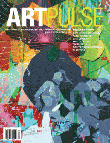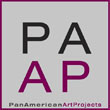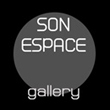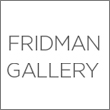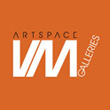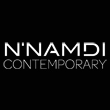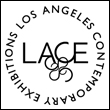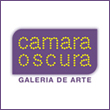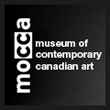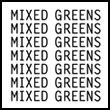« Reviews
VIBA Fest
ThisIsNotAGallery - Buenos Aires, Argentina
By María Carolina Baulo
Landing in Buenos Aires last November the Video Arte Internacional Buenos Aires (VIBA Fest) brought together sixty-six artists from all around the world, presenting more than 60 videos and short films at ThisIsNotAGallery.
This experience was led by the Argentinian Carlos Baragli, Director of ThisIsNotAGallery, artist, curator, illustrator and professor of visual arts, accompanied by Andrew Ütt, a curator from the United States, also Director of the Andrew Ütt Gallery in Oakland.
VIBA Fest, as an independent project, dedicated itself to the diffusion of contemporary video art, emphasizing the idea of relating video art with the city as a social space. Mobile galleries were scattered throughout Buenos Aires from November 22 - 27 and special presentations took place at ThisIsNotAGallery from November 27 - 29. The videos were distributed under three themes: “Drifts & Outlines,” “A house in the world,” and “A condition of character.” Each group presented around 20 short films, all of them deeply committed to the idea of creating social awareness regarding the themes. Highlights of the exhibition were a piece presented by Andy Fogwill from Argentina - a two-minute video, 109, referring to the demolition of a famous downtown hotel, a space particularly associated with erotic and sexual casual encounters and Cyclothynia presented by Vasilis Milesis from Greece, in which he denounced the violence existing within society. Most of the offerings emphasized the importance of diverse thinking.
As one of the most cosmopolitan cities in the world, Buenos Aires reflects a direct communication with the global community and the expansion of the contemporary art world. According to Andrew Ütt, VIBA represented real life, the interaction of opposite perspectives which become fundamental to creating an atmosphere in which we could all live, as well as the importance of creating a mental and physical connection with others expressed through art. Transportation and the Internet were also issues that concerned the curator when referring to intercultural experience. “Parallel to communication arises self-expression - the art of video - as an opposing perspective on cultural representation,” noted the curator.
VIBA Fest 2009, which promises to increase the number of artists, countries and videos participating in future years, revolved around the idea of acceptance and diffusion of diverse ethnographic perspectives. The goal was to bring together the most different, complementary, and diametric ways of apprehending reality, seen through the eyes of the artists who shared a common vision, and as Andrew Ütt said, “the ability to live.”
(November 22-29, 2009)
María Carolina Baulo: Art writer, Master’s Degree in History of Art, with studies in Cinematography, Photography and Theatre. macabaulo@hotmail.com
Filed Under: Reviews


